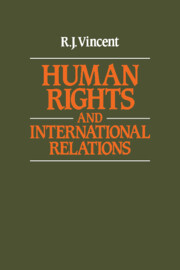5 - Human rights in North—South relations
Published online by Cambridge University Press: 11 November 2009
Summary
The debate about human rights in North—South relations is to some extent a rehearsal of the issues in dispute between East and West. Once more individualism and liberty are ranged against collectivism and equality; civil and political rights against economic and social rights. The difference is that the East—West debate takes place between established systems, two varieties of ‘have’ countries, whereas the North—South dispute is between ‘haves’ and ‘have-nots’. Because of this, there is arguably more vitality in the North—South dispute on human rights. It is not a mere conversation, but a project from which one side looks to gain materially at the expense of the other.
‘North’ and ‘South’ are now terms established in the contemporary vocabulary of international politics, but the membership of each group is not always clear. A view from the South might see East and West coalescing into a North which bears all the distinguishing marks of modernity — industrialization, a high standard of living, urbanization, high technology — and which is more remarkable for what its members have in common than for what divides them. But within the North, East and West, and countries within these categories, might be more preoccupied with what sets them apart from each other than what unites them. Certainly, the Soviet Union is anxious to distance itself from the exploitative North.
- Type
- Chapter
- Information
- Human Rights and International Relations , pp. 76 - 91Publisher: Cambridge University PressPrint publication year: 1987

